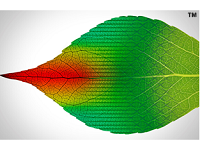Transportation Energy Resources from Renewable Agriculture

Program Description:
Innovation Need:
Petroleum remains a major US energy import, and is responsible for 42% of U.S. energy-related carbon dioxide (CO2) emissions. Although use of low-carbon fuels is growing, the trend is too slow to reduce transportation dependence on petroleum-based fuels in a timely and significant manner. In order to reduce dependence on foreign oil imports and limit CO2 emissions, it is critical to accelerate development of low- or zero-carbon transportation fuels. Unfortunately, producing the large amounts of biomass needed for biofuels to displace petroleum requires significant improvements to the productivity and efficiency of biofuel crops. In addition, limited arable land and water availability in coming years intensify the need for rapid improvement in plant performance. Conventional breeding approaches generally take decades to realize this type of advancement, because the process of phenotyping (identifying and measuring the physical characteristics of plants) is very time-intensive and predominately an imprecise, manual process. Advanced technologies that increase the throughput of plant screening and the identification of genetic markers for desirable traits can be used to generate more precise and complete sets of field data, dramatically speeding up the breeding process and the development of superior biofuel crops. The main goal of the TERRA program is to develop tools that increase the rate of genetic improvement and yield of bioenergy crops grown in the field. Specifically, innovations developed in the program are aimed at enabling breeders to evaluate more individual plants, identifying the most promising plants earlier in the growing season, capturing better information about plants as they grow, and then using this information to select the best genes to propagate into new varieties.
Potential Impact:
If successful, innovations developed in the TERRA program will accelerate the yearly yield gains of traditional plant breeding and facilitate the development of renewable, sustainable, and affordable biofuel feedstocks. These results could lead to increased production of domestic biofuels, environmentally sustainable production practices, and improvements in other agricultural sectors such as food, feed and fiber.
Security:
Increasing domestic supply of renewable liquid transportation fuels reduces foreign energy dependence.
Environment:
Increased use of low-carbon biofuels could reduce CO2 emissions from the transportation sector, mitigate greenhouse gas effects, enhance water productivity, and increase agricultural land use efficiency.
Economy:
TERRA‘s advanced crop phenotyping technologies could enable private and public sector crop breeding, stimulate new market opportunities for US business in the global bioeconomy, and nourish new start-up enterprises in precision agriculture.
Contact
Project Listing
• Donald Danforth Plant Science Center - A Reference Phenotyping System for Energy Sorghum
• Pacific Northwest National Laboratory (PNNL) - The Consortium for Advanced Sorghum Phenomics (CASP)
• Purdue University - Automated Sorghum Phenotyping and Trait Development Platform
• Texas A&M University - Automated TERRA Phenotyping System
• University of Illinois, Urbana-Champaign (UIUC) - TERRA MEPP (Mobile Energy-crop Phenotyping Platform)
